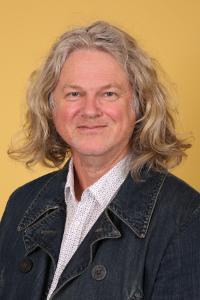Professor John Sutton
IAS Fellow at Hatfield College, October-December 2021
 Professor John Sutton has a BA in Classics (Oxford) and a PhD in Philosophy (Sydney). He works in the Department of Cognitive Science at Macquarie University in Sydney, where he was previously Head of the Department of Philosophy. He is Director of CEPET, the Macquarie University Centre for Elite Performance, Expertise, and Training; a Fellow of the Australian Academy of Humanities; and a current member of the Australian Research Council’s College of Experts. He has held visiting fellowships at UCLA, Edinburgh, UCSD, and King’s College London, and was first President of the ASPP, the Australasian Society for Philosophy and Psychology. He has previously received Macquarie University’s Outstanding Teacher Award.
Professor John Sutton has a BA in Classics (Oxford) and a PhD in Philosophy (Sydney). He works in the Department of Cognitive Science at Macquarie University in Sydney, where he was previously Head of the Department of Philosophy. He is Director of CEPET, the Macquarie University Centre for Elite Performance, Expertise, and Training; a Fellow of the Australian Academy of Humanities; and a current member of the Australian Research Council’s College of Experts. He has held visiting fellowships at UCLA, Edinburgh, UCSD, and King’s College London, and was first President of the ASPP, the Australasian Society for Philosophy and Psychology. He has previously received Macquarie University’s Outstanding Teacher Award.
Professor Sutton is a philosopher of cognitive science, studying memory and skill. Earlier work addressed the history of theories of memory: his book Philosophy and Memory Traces: Descartes to connectionism (Cambridge UP, 1998), reconsidered early modern and contemporary theories of memory, as an experiment in historical cognitive science. His more recent research applies the insistently interdisciplinary frameworks of embodied and distributed cognition: remembering and other psychological processes may be spread or ‘distributed’ across the brain, the body, and the social and material world. The mind is thus not just the brain, and ‘I’ am not in my head.
Current projects put these ideas to work in conceptual, historical, experimental, and ethnographic studies, alongside collaborators and students from diverse backgrounds. One research program addresses embodied memory and skilled movement in cultural context. Case studies from sport, music, and performance ground an integrative approach to intelligence in action, countering the prevailing focus on automaticity as the essence of embodied skill. In a second collaboration with experimental psychologists, Professor Sutton studies shared remembering and collective cognition in small groups such as teams and longstanding couples, countering the prevailing view that social influences inevitably distort individual memory.
Professor Sutton’s work has been funded by the Australian Research Council, the Royal Society of New Zealand’s Marsden Fund, the Wellcome Trust, Alzheimer’s Australia, and the Australian Cricketers’ Association. He is coeditor of the books Descartes’ Natural Philosophy; Embodied Cognition and Shakespeare’s Theatre; and Collaborative Remembering: theories, research, and applications.
These interdisciplinary projects on memory and skill fuel Professor Sutton’s IAS Fellowship, as part of the Theme Project Representing Memory, which aims to integrate approaches from psychology, literature, and anthropology. He will also make connections with the Theme Project Threshold Worlds: an interdisciplinary project on dreams, narrative and liminal cognition, and contribute to broader discussions about the challenges of cross-disciplinary research, reaching further across philosophy, music, and the medical humanities. His own work at Durham will focus on how we learn to remember in specific cultural contexts, addressing neural, social, and developmental aspects of modern human memory together. Remembering the personal and shared past in all its rich and emotional detail is a skill achieved gradually, and always in unique cognitive and narrative ecologies. So memory is a natural test case for team projects spanning the cognitive sciences, the social sciences, and the humanities.
Events
IAS public lecture - 28 October 2021 - 5.30 - 6.30pm. Hatfield College Chapel, Hatfiled College, Durham University
Personal Memory, the Scaffolded Mind, and Cognitive Change in the Neolithic
Further information here.
IAS Seminar - 29 November 2021 - 1.00 - 2.00pm. IAS Seminar Room, Cosin's Hall, Institute of Advanced Study
Place and memory: embodied wayfinding and cognitive maps
Registration is essential. Details here.


/prod01/prodbucket01/media/durham-university/research-/research-institutes/institute-of-advanced-study/43486-hero.jpg)